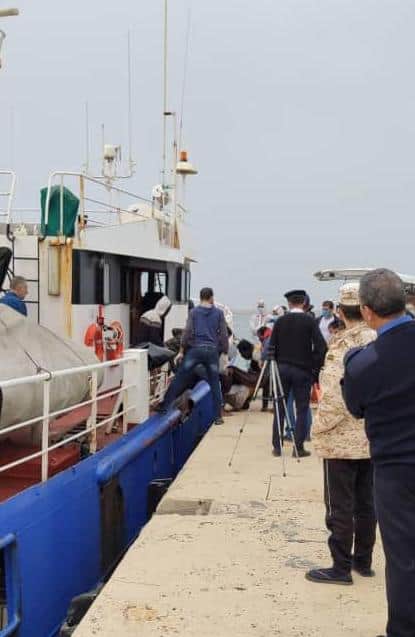
A spokesman for the United Nations High Commissioner for Refugees (the UNHCR) made a statement in Geneva today on the situation in the Mediterranean Sea. The statement was made in the aftermath of the illegal pushback of 57 migrants to Libya after the Easter weekend following an incident where 12 people were left to die of thirst or of drowning when calls to save them from Malta’s search and rescue are were ignored for 5 days.
The UNHCR said that they “are deeply concerned about recent reports of failure to assist and coordinated pushbacks of migrant boats in the central Mediterranean. Reports that Maltese authorities requested commercial ships to push boats with migrants in distress back to the high seas are of particular concern.”
The UNHCR also criticised Italy, without specifically referring to it, expressing concern “that humanitarian search and rescue vessels, which usually patrol the central Mediterranean area, are being prevented from supporting migrants in distress, at a time when the numbers attempting to make the perilous journey from Libya to Europe has increased sharply. Following the immobilization of the humanitarian rescue ships Alan Kurdi and Aita Mari, there are currently no active humanitarian search and rescue vessels in the central Mediterranean. It has also been alleged that administrative regulations and measures are being used to impede the work of humanitarian NGOs.”
The UNHCR called for restrictions on the work of these rescuers to be lifted immediately. Such measures are clearly putting lives at risk.
The agency stated that “in the first three months of the year, there has already been a four-fold increase in departures from Libya compared to the same period in 2019. Migrants embarking on this journey have a diverse range of protection needs under both international human rights and refugee law, including the principle of non-refoulement, which protects all migrants, regardless of their migration or asylum status, from being expelled or returned to dangerous environments.
“Yet, since 9 April, both Italy and Malta have declared their ports ‘unsafe’ for disembarkation due to COVID-19”.
The UNHCR also referred to the two Captain Morgan boats and the commercial ship ordered to stay out at sea with hundreds of migrants trapped on board: “Currently, we understand that there are at least three vessels with migrants on board awaiting disembarkation.” The UNHCR called “for all migrants currently being held on board these vessels to be urgently disembarked, as the conditions on merchant vessels are not suitable for long-term accommodation.”
On the 15 April pushback, the agency said it has “verified that a vessel containing 51 migrants and asylum seekers, including 8 women and 3 children, was returned to Libya on a private Maltese boat after being picked up in Maltese waters. The migrants were sent to Takiq al-Sikka detention facility by the Libyan authorities. During their six days at sea, five people had died and seven others went missing and are presumed drowned.
“We are also aware of claims that distress calls to relevant Maritime Rescue Coordination centres have gone unanswered or been ignored, which, if true, seriously calls into question the commitments of the States concerned to saving lives and respecting human rights.”
The UN agency added that the Libyan Coast Guard is continuing to turn vessels back to its shores, and place the intercepted migrants in arbitrary detention facilities where they face horrendous conditions including torture and ill-treatment, sexual violence, lack of health care and other human rights violations. These overcrowded facilities are also, of course, at high risk of being over-run with COVID-19.
The UNCHR called for a moratorium on all interceptions and returns to Libya. “States must always comply with their obligations under international human rights and refugee law.”
Despite COVID-19, SAR operations should be maintained and swift disembarkation ensured in a port of safety, while ensuring compatibility with public health measures.